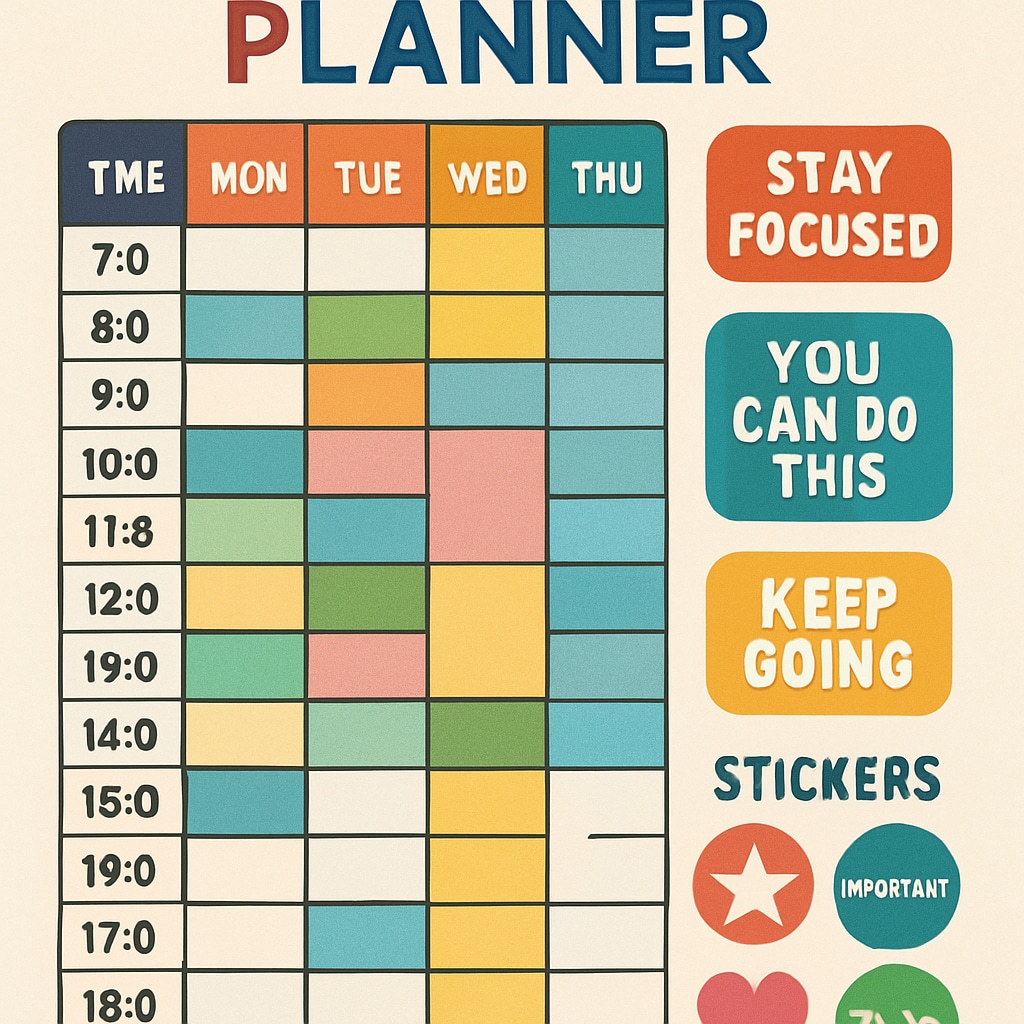For high school students with ADHD, falling behind in credits can feel overwhelming. The combination of managing ADHD symptoms and academic expectations often leads to challenges such as disorganization, procrastination, and difficulty staying focused. However, even if you’re significantly behind, there are effective strategies to recover credits and graduate on time. This guide explores how to utilize school resources, create a customized study plan, and implement ADHD-friendly time management techniques to regain control over your education.
Understanding Credit Deficits and ADHD Challenges
High school credits are the building blocks of graduation. Falling behind can occur for various reasons, but ADHD students may face unique obstacles, including difficulty with executive functioning (planning, prioritizing, and completing tasks). Recognizing these challenges is the first step toward addressing them effectively.
Many schools offer resources like tutoring, summer courses, and credit recovery programs designed to assist students with academic gaps. Reaching out to your school counselor is a critical first step in understanding your specific situation and exploring recovery options.

Step-by-Step Guide to Credit Recovery
Here’s how ADHD students can tackle credit deficits systematically:
- Meet with Your School Counselor: Your counselor can provide valuable insights into your current standing, graduation requirements, and available recovery options.
- Enroll in Credit Recovery Programs: Many schools offer online or in-person programs that allow you to retake failed courses or complete additional coursework.
- Utilize Summer or Evening Classes: These options provide additional learning opportunities without interfering with your regular schedule.
- Consider Independent Study: For subjects you find particularly challenging, independent study programs may offer the flexibility you need.
- Request Accommodations: If ADHD symptoms are a significant barrier, work with your school to implement an Individualized Education Plan (IEP) or 504 Plan.
ADHD-Friendly Learning Strategies
ADHD students may benefit from tailored approaches that align with their learning styles. Here are some strategies to enhance focus and productivity:
- Break Tasks into Smaller Steps: Large assignments can feel overwhelming. Divide them into manageable chunks with specific deadlines.
- Use Visual Aids: Tools like color-coded calendars, sticky notes, and visual timers can help track progress and stay organized.
- Incorporate Movement: Physical activity, like standing while studying or taking short breaks for exercise, can boost focus.
- Leverage Technology: Apps like Todoist or Trello can help with task management, while tools like Read&Write can assist with reading comprehension.
- Set Realistic Goals: Focus on achievable objectives to build confidence and maintain motivation.

Time Management Tips for ADHD Students
Time management is often a major struggle for students with ADHD. Here are some practical tips:
- Use a Timer: The Pomodoro Technique, which alternates 25 minutes of focused work with 5-minute breaks, can be highly effective.
- Prioritize Tasks: Identify the most urgent tasks and tackle them first. Use a priority matrix if needed.
- Eliminate Distractions: Create a dedicated study space free of distractions like social media or loud noises.
- Schedule Downtime: Balance study sessions with breaks to prevent burnout and maintain focus.
By implementing these strategies, you can maximize productivity and regain control over your academic schedule.
Staying Motivated and Seeking Support
Recovering lost credits is a challenging journey, but it’s essential to stay motivated and seek support when needed. Here’s how:
- Find an Accountability Partner: Whether it’s a peer, teacher, or family member, having someone to check in with can help you stay on track.
- Celebrate Small Wins: Acknowledge your progress, no matter how small, to maintain a positive mindset.
- Seek Professional Help: ADHD coaches and therapists can provide personalized strategies for overcoming academic challenges.
- Stay Connected: Join support groups for ADHD students to share experiences and tips.
Remember, recovering credits and graduating on time is possible with the right mindset and resources. Stay proactive, communicate openly with your school, and utilize the tools available to you.
In conclusion, addressing high school credit deficits as an ADHD student requires a combination of school resources, tailored learning strategies, and effective time management. By taking small, consistent steps and leveraging ADHD-friendly techniques, you can stay on track for graduation and achieve academic success.


